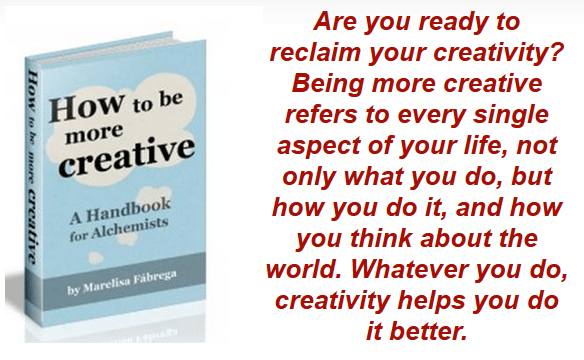
In order to achieve your goals, you need lots of gumption.
What is gumption? The word “gumption” makes me think of courage, combined with enthusiasm, resourcefulness, and moxie. It’s refusing to allow the world to say “no” to you. While doing the research for this article, I came across three great definitions of gumption which I’d like to share with you.
The first definition comes from Robert M. Pirsig’s classic, Zen and the Art of Motorcycle Maintenance, a book about a cross-country father and son motorcycle trip which grapples with complex philosophical conundrums. Here’s Pirsig on gumption:
“A person filled with gumption doesn’t sit around dissipating and stewing about things. He’s at the front of the train of his own awareness, watching to see what’s up the track and meeting it when it comes. That’s gumption.”
 Consultant and philosopher Bob O’Connor knows what it’s like to lose it all. As he was going through his second divorce and his business was going under, he hit rock bottom. But then he made a comeback, by developing gumption. He writes about his experience in his book, Gumptionade: The Booster For Your Self-Improvement Plan.
Consultant and philosopher Bob O’Connor knows what it’s like to lose it all. As he was going through his second divorce and his business was going under, he hit rock bottom. But then he made a comeback, by developing gumption. He writes about his experience in his book, Gumptionade: The Booster For Your Self-Improvement Plan.
O’Connor explains that gumption is courage + resourcefulness + common sense. He goes further by saying that “Gumption is the power to play your hand well, to do what needs to be done, when it needs to be done.”
The third definition of gumption is from Scott H. Young. Young is a popular blogger who writes about self-improvement with a focus on autodidactism. Here’s what he has to say about gumption:
“If I had to define gumption myself (and I define words for myself all the time, so why not?), I’d say that it’s a combination of boldness and enthusiasm. It means taking the initiative, not because you’re immune to fear or dripping with confidence, but simply because you don’t buy into all the socially programmed reasons to hold yourself back.”
And if you’re asking yourself right now why you should care about gaining gumption, it’s because it takes gumption to do all of the following:
- Go after big, hairy, audacious goals (a term coined by James Collins and Jerry Porras).
- Get back up after you’ve fallen flat on your face in front of the whole world.
- Compete with people who got much more of a head start in life than you did.
- Keep saying, “Yes, I can achieve my dreams” when the world keeps saying, “Just give up already”.
- Persevere and keep moving toward what you want, even after you’ve come across several obstacles, gotten lost more than once, and had to take more detours than you care to remember.
- Have the will to bear discomfort, delay gratification, and keep your eye on the prize, even when things get tough.
Want gumption? Below you’ll discover how to up your gumption quotient so that you can go after what you want in life.
Gumptionade
I already wrote about O’Connor and his book “Gumptionade” above. One of the strategies that O’Connor shares in his book for gaining gumption is to learn how to benefit from your mistakes.
It’s easy to refuse to acknowledge your mistakes, or to allow your mistakes to keep you down. But using your mistakes as a learning mechanism that will propel in the direction that you want to be moving takes gumption.
O’Connor explains that at the end of each day you need to review the day and ask yourself the following:
- What mistake—big or small—did I make today?
- I thought at the time it was the right thing to do because:
- Now it seems to me that a more effective course of action would have been to:
- The next time a situation like this comes up, I will do better by:
By constantly analyzing your mistakes and learning from them, you’ll be increasing your gumption.
A second strategy recommended by O’Connor is to acknowledge yourself when you do things well. People with gumption keep their spirits up by giving themselves kudos for all the good that they do.
Just as you review your day looking for any mistakes you may have made, think back and recognize what you did well. Here’s what to do:
- Begin by creating a scale for your excellent deeds. As an illustration, you can give yourself one star for small, but noteworthy excellence; two stars for medium excellence; three stars for a lot of excellence; and four stars for jumbo excellence.
- At the end of each day write down everything you did well that day, and rate each god deed depending on its degree of excellence.
Gumption helped O’Connor get his life back on track, and it can help you as well.
Beware of Gumption Traps
In Chapter 26 of “Zen and the Art of Motorcycle Maintenance”, Pirsig deals with the subject of gumption. He indicates that gumption is to a person what fuel is to a motorcycle. Here’s Pirsig:
“If you’re going to repair a motorcycle, an adequate supply of gumption is the first and most important tool. If you haven’t got that you might as well gather up all the other tools and put them away, because they won’t do you any good.
Gumption is the psychic gasoline that keeps the whole thing going. If you haven’t got it there’s no way the motorcycle can possibly be fixed. But if you have got it and know how to keep it there’s absolutely no way in this whole world that motorcycle can keep from getting fixed. It’s bound to happen. Therefore the thing that must be monitored at all times and preserved before anything else is the gumption.”
Of course, those two paragraphs above don’t apply just to repairing a motorcycle. They apply to any project you decide to take on. Pirsig goes on to say that there are many traps that you need to watch out for, because they will sap your gumption. He refers to these as gumption traps.
A gumption trap is anything that makes you lose your enthusiasm for a project. They can prevent you from getting started, or they can discourage you from continuing with a project before you’ve achieved your goal.
In addition, gumption traps can be internal or external. Pirsig refers to internal gumption traps as hang-ups, and he refers to the external ones as setbacks.
There are hundreds and maybe even thousands of gumption traps, so it’s impossible to name them all. However, whenever you feel like you’re losing the initiative to get to work on a project that’s important to you, or you feel drained of the motivation to keep going once you’ve gotten started, recognize that you’ve fallen into a gumption trap.
One example of a setback–or an external gumption trap–is when you take a motorcycle apart in order to repair it, and when you put it back together you notice that you left out some pieces. This means that you have to undo everything you did and start all over again. At this point, you’re likely to lose your enthusiasm for the project.
Another setback is when you don’t have the right information–maybe you can’t find a manual for your specific type of bike. Yet another example of a setback is when you don’t have the right tools for the job.
When it comes to hang-ups, or internal gumption traps, examples include anxiety and boredom. Here’s what Pîrsig has to say about each of these:
“Anxiety, the next gumption trap, is sort of the opposite of ego. You’re so sure you’ll do everything wrong you’re afraid to do anything at all. Often this, rather than ‘laziness’ is the real reason you find it hard to get started.”
“Boredom is the next gumption trap that comes to mind. This is the opposite of anxiety and commonly goes with ego problems. Boredom means you’re off the Quality track, you’re not seeing things freshly, you’ve lost your ‘beginner’s mind’ and your motorcycle is in great danger. Boredom means your gumption supply is low and must be replenished before anything else is done.”
If you’ve fallen into a gumption trap, you need to get yourself out. In the next section I’m going to share with you some of the ways I get myself out of gumption traps. Hopefully, these strategies will be useful for you as well.
Eight Ways to Get Yourself Out of Gumption Traps
Here are eight ways you can get yourself out of a gumption trap:
1. Increase Your Motivation. One of the reasons people lose their gumption is because they lose their motivation. Fortunately, there are many strategies you can use to raise your motivation when it starts to wane. The best of these is to remind yourself of all the reasons you have for wanting to achieve a goal.
Ask yourself questions like the following:
- Why is achieving this goal important to me?
- How will I benefit from attaining this?
- Why was I originally so motivated to pursue this?
2. Become More Resourceful. When I think of resourcefulness, I think of the TV series, MacGyver. MacGyver was a secret agent who constantly found himself in life-or-death situations and would always save himself in the end by improvising with whatever everyday objects he had at hand.
Whenever you find yourself losing your gumption because of a lack of resources, get creative. Do all of the following:
- Engage in creative problem soloving;
- Brainstorm alternatives;
- Take a different perspective;
- Leverage your network;
- Be curious;
- Be more playful; and so on.
3. Be Persistent. People with gumption don’t give up. They have grit and they persist. To increase your grit, develop active hope. That is, have hope that things will improve, because you’re going to improve them.
4. Increase Your Enthusiasm. Gumption is a high energy word. It’s full of spirit and enthusiasm. When you feel your enthusiasm draining out of you, visualize the end result that you’re pursuing. See it as clearly as you can in your mind’s eye, as if you’ve already achieved it. Then get up, and make it happen
5. Become More Courageous. Being courageous is almost synonymous with being gumtious. You’ve probably already read that courage isn’t the absence of fear. It’s learning to act despite feeling fear.
I recently came across a book titled “Do It Scared”. I’m planning to adopt that title as one of my mantras. People with gumption don’t wait for the fear to go away before they act. When they want to do something they do it, even if that means they have to do it scared.
6. Be Bold and Audacious. People who have gumption don’t sit around waiting for things to happen, and they don’t wait for others to take action. Instead, they boldy step forward and get to work on making things happen themselves. They have the audacity to think big, act big, and be big.
7. Fake It ‘Till You Make It. As Scott Young points out in the quote I included at the top of this blog post, you don’t need to wait until you have high levels of self-confidence to put yourself out there. Instead, fake it ‘till you make it. Put on your best “I can pretend to be confident as well as the best of them” face, get out there, and get your gumption on.
8. Increase Your Self-Efficacy. Self-efficacy is your belief that you have the ability to do what needs to be done. It’s hard to have gumption if you believe that you don’t have what it takes.
If you need some help in the self-efficacy department, remind yourself of all the times you’ve successfully tackled difficult goals in the past. Also, look for examples of people you can relate to who have succeeded in achieving the goal you’re trying to attain.
Conclusion
What would you do if you had more gumption? Use the techniques above to increase your gumption, and then get out there and do it. To live your best life, you need gumption.
Read Next: How to Be More Daring, Bold, and Audacious





Related Posts:




 Marelisa Fabrega is a lawyer and entrepreneur. She holds a Bachelor of Science in Business Administration from Georgetown University in Washington, D.C., as well as a Juris Doctor from the Georgetown University Law Center. You can learn more about her
Marelisa Fabrega is a lawyer and entrepreneur. She holds a Bachelor of Science in Business Administration from Georgetown University in Washington, D.C., as well as a Juris Doctor from the Georgetown University Law Center. You can learn more about her 





